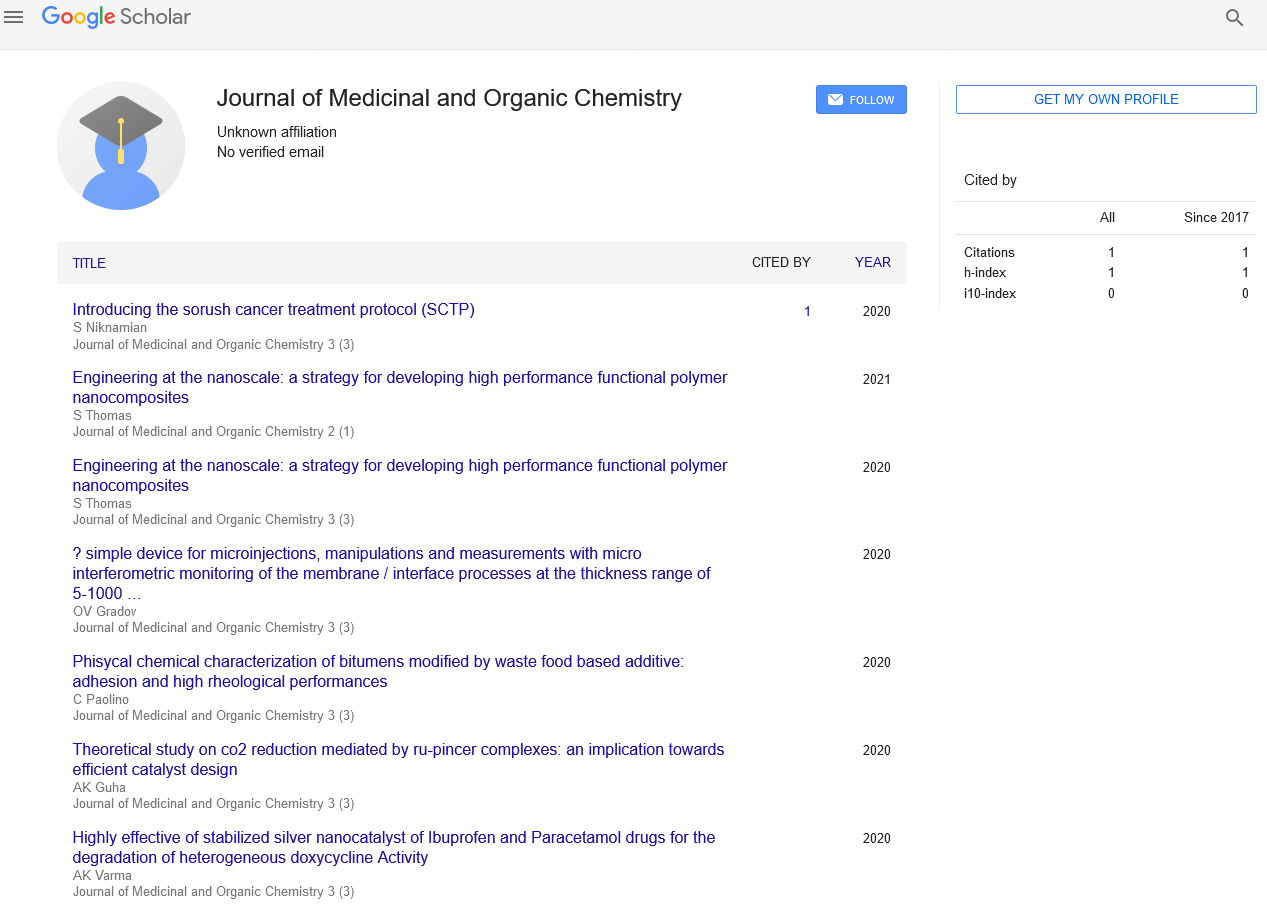Perspective - Journal of Medicinal and Organic Chemistry (2024) Volume 7, Issue 2
Unraveling the Threads of Disease: The Dynamic Field of Epidemiology
- Corresponding Author:
- Maria Kerbay
Department of Clinical Research,
Catholic University,
Sao Paulo,
Brazil
E-mail: maria.kerbay@einstein.br
Received: 07-Mar-2024, Manuscript No. jmoc-24-129077; Editor assigned: 12-Mar-2024, PreQC No. jmoc-24-129077 (PQ); Reviewed: 26-Mar-2024, QC No. jmoc-24-129077; Revised: 11-Apr-2024, Manuscript No. jmoc-24-129077 (R); Published: 18-Apr-2024, DOI: 10.37532/jmoc.2024.7(2).191-192
Introduction
Epidemiology, often referred to as the science of public health, serves as a cornerstone in understanding the distribution and determinants of diseases within populations. It encompasses a multidisciplinary approach that integrates elements of medicine, statistics, biology, sociology, and environmental science to investigate patterns of disease occurrence and identify factors influencing health outcomes. In this comprehensive exploration of epidemiology, we delve into its significance in public health, its methodologies, and its role in informing policies and interventions to safeguard population health.
Description
The scope of epidemiology: From disease surveillance to health promotion
Epidemiology encompasses a broad spectrum of activities aimed at understanding the burden of diseases, identifying risk factors, and evaluating the effectiveness of interventions to prevent and control diseases. At its core, epidemiology seeks to answer fundamental questions about disease occurrence, distribution, and determinants, guiding public health strategies and interventions to improve population health outcomes.
One of the primary functions of epidemiology is disease surveillance, which involves the systematic collection, analysis, and interpretation of data on disease occurrence and trends. By monitoring disease outbreaks, tracking the spread of infectious diseases, and identifying emerging health threats, epidemiologists play a crucial role in early detection and response to public health emergencies. Moreover, epidemiology investigates the complex interplay between biological, behavioral, environmental, and social determinants of health, elucidating the root causes of diseases and informing interventions to address health disparities and promote health equity. From understanding the social determinants of chronic diseases to assessing the impact of environmental exposures on health outcomes, epidemiology provides valuable insights into the multifaceted nature of health and disease.
Methodologies in epidemiology: Unraveling patterns and causality
Epidemiologists employ a variety of study designs and methodologies to investigate disease patterns, risk factors, and causal relationships. Observational studies, such as cohort studies and case-control studies, examine associations between exposures and outcomes in populations, providing evidence of potential causal relationships. Cohort studies follow groups of individuals over time to assess the incidence of diseases and identify risk factors associated with disease development. Case-control studies compare individuals with a particular disease (cases) to those without the disease (controls) to evaluate the association between exposures and disease outcomes.
In addition to observational studies, epidemiologists conduct experimental studies, such as Randomized Controlled Trials (RCTs), to evaluate the effectiveness of interventions in preventing or treating diseases. RCTs randomly assign participants to intervention and control groups to assess the impact of interventions on health outcomes, providing rigorous evidence of causality.
Applications of epidemiology: Informing public health policies and interventions
Epidemiology plays a central role in informing public health policies and interventions aimed at preventing and controlling diseases, promoting health equity, and improving population health outcomes. By identifying risk factors and causal pathways, epidemiological research provides evidence-based recommendations for disease prevention, screening, and treatment strategies. Infectious disease epidemiology, for example, informs vaccination policies, outbreak investigations, and infection control measures to mitigate the spread of communicable diseases such as influenza, measles, and COVID-19. Epidemiological modeling techniques, combined with real-time surveillance data, enable public health agencies to predict disease transmission dynamics, assess the impact of interventions, and allocate resources effectively.
Chronic disease epidemiology examines the distribution and determinants of noncommunicable diseases such as cardiovascular disease, cancer, and diabetes, informing strategies for primary prevention, early detection, and management of chronic conditions. Epidemiological research on modifiable risk factors, such as tobacco use, unhealthy diet, physical inactivity, and environmental exposures, guides interventions aimed at reducing disease burden and promoting healthy behaviors.
Challenges and opportunities in epidemiology
Despite its contributions to public health, epidemiology faces numerous challenges, including data limitations, methodological complexities, and emerging health threats.
Incomplete or inaccurate data, data privacy concerns, and challenges in data collection and analysis can hinder epidemiological research and surveillance efforts. Moreover, epidemiology must adapt to evolving public health challenges, such as emerging infectious diseases, antimicrobial resistance, climate change, and global health inequities. Addressing these challenges requires interdisciplinary collaboration, innovation in research methods, and investment in public health infrastructure and workforce development.
However, epidemiology also presents opportunities for advancing public health science and practice through innovation, collaboration, and technology. The use of big data analytics, digital surveillance systems, and real-time data visualization tools enables rapid detection and response to disease outbreaks, enhancing the effectiveness of public health interventions.
Conclusion
In conclusion, epidemiology serves as a vital science in understanding the distribution and determinants of diseases within populations, informing public health policies and interventions to improve population health outcomes. By investigating patterns of disease occurrence, identifying risk factors, and evaluating the effectiveness of interventions, epidemiology contributes to the prevention and control of diseases, promotion of health equity, and enhancement of global health security. As we confront the challenges of the 21st century, let us harness the power of epidemiology to safeguard population health and build healthier, more resilient communities.

